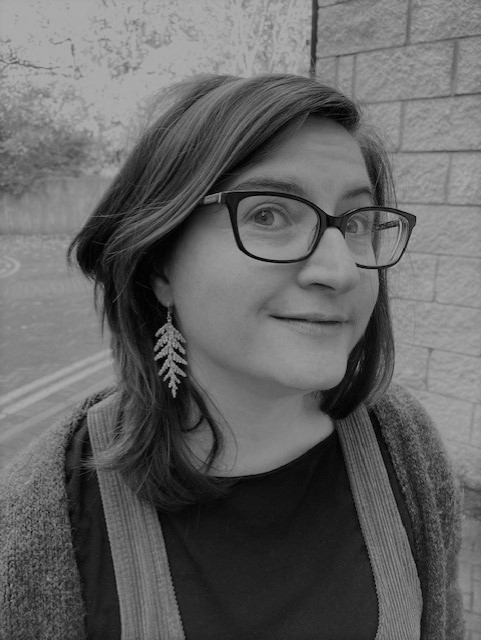
In this post, Victoria Bennett, Academic Administrator (QA&QE) at the College of Medicine and Veterinary Medicine, highlights four presentations recorded for the annual event that highlights good practice across the College. This year’s theme focused on ‘Equality, Diversity and Inclusion’.
Each year, the College of Medicine and Veterinary Medicine holds an event to showcase examples of good practice in learning and teaching across the College. Each event is organised around an overarching theme that we encourage presenters to interpret broadly. Past themes have included ‘building academic communities’, ‘feedback’, ‘assessment’, and ‘innovation in challenging times’. The theme for the 2022 showcase was ‘Equality, Diversity and Inclusion’. Our online event in March 2022 sadly had to be cancelled, but four of our 2022 presenters have kindly agreed to record the presentations that they would have made at this event. We are delighted to present these below:
Presentation 1: Promoting equality, diversity and inclusivity in a collaborative interdisciplinary academic community
Presenters: Durga Kulkarni, Dr Thulani Ashcroft, Bohee Lee, Dr Emma Farfan de los Godos, Dr Madhurima Nundy. All presenters from the Usher Institute, Deanery of Molecular, Genetic and Population Health Sciences
Description: This panel discussion focuses on the perspective of Master’s in Public Health alumni who have worked as student volunteers, reviewers and team leaders within the Usher Network of the Covid-19 evidence reviews (UNCOVER). It will explore their experience of collaboration through different cultural perspectives, academic and work experiences, and discuss the approach taken by UNCOVER to promote equality within the research community. UNCOVER’s working model of staff student co–creation provided an opportunity to bridge the gap between academia and practice. The participants describe their own personal experience of development and evolving into an award-winning team (Usher recognition award “Most Outstanding Team” 2021). A core strength within this team was diversity which was promoted by UNCOVER’s inclusive approach, and has led to UNCOVER remaining relevant, productive and sustainable. Though we are continuing to improve accessibility as an interdisciplinary group, we hope this could be an example for others to develop a pathway for current and new student involvement from diverse backgrounds.
Presentation 2: Using a lottery to select Student Representatives
Presenter: Dr John Menzies, Deanery of Biomedical Sciences
Description: Student Representatives (Reps) are key figures in the student-staff community. Reps are normally appointed using an election. However, elections can favour ambitious students who perceive themselves as popular, charismatic and capable. By the same token, elections may exclude students who believe they do not possess these qualities. As such, many students experience these elections mainly as observers, not participants; where their only active role is to vote for an individual from a small pool, a pool they may feel excluded from.
We took a different approach: to select Reps randomly. Our lottery-based approach gives all students an equal chance of selection and, if selected, an equal opportunity to develop their skills and attributes in the role. We believe using a lottery fosters a sense of fairness and equality, and generates a group of Reps that is more diverse and more representative of the student cohort. However, there are issues that warrant further exploration. For example, whether staff and students feel a lottery is a legitimate way to appoint Reps, and how to help randomly-selected Reps engage confidently and enthusiastically with the role.
Here, we describe why we chose to do this – the lottery process – and the outcomes after running it in two different contexts: the undergraduate biomedical programmes at the University of Edinburgh-Zhejiang University Joint Institute; and a postgraduate programme in Science Communication and Public Engagement in the Deanery of Biomedical Sciences. We will also discuss feedback from Reps, students and staff on our lottery model.
Presentation 3: The impact of providing scholarship support to surgical trainees from low and middle income countries (LMIC)
Presenters: Hae Choi, Weronika Pasternak, and Dr Susan Morrow, Surgical Sciences, Deanery of Clinical Sciences
Description: Edinburgh Surgery Online (ESO) offer a number of part-time, taught, online MSc and ChM programmes that are designed to support students in the early or late years of surgical training. The programmes attract a high number of international students, many from Low and Middle Income Countries (LMIC). Over the years, ESO has secured funding for a number of scholarships to support applicants from LMICs. Here, we describe an honours dissertation project that explores the impact of these scholarships on working practices, patient care, and career progression.
Presentation 4: Thinking about ethics in Computer Science
Presenters: Susana Roman Garcia and Dr Melanie Stefan Senior, Deanery of Biomedical Sciences, and Dr David Sterratt, School of Informatics
Description: ‘Thinking about ethics in (Computer) Science’ is a presentation given by Susana, Melanie and David. We talk about biases in science, and offer examples of good practice to think about ethics within the STEAM curriculum. We discuss what would safe spaces look like when talking about the bias and oppression science can carry.
<
 Victoria Bennett
Victoria Bennett
Victoria is Academic Administrator (QAE) at the College of Medicine and Veterinary Medicine. Victoria works closely with the College Dean Quality Assurance to ensure College oversight and enhancement of QAE processes and to support opportunities to share good practice in learning, teaching and assessment across the College.

